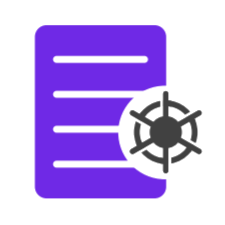While Salesforce is a popular CRM, Microsoft Dynamics 365 comes a close second in terms of use.
If you’re a small business, you may wonder what’s the best CRM for you. Don’t fret, we’re here to help you. We’ll evaluate both CRMs on 3 criteria:
- Integration with existing products
- Ease of use
- Potential for customization
Microsoft Dynamics 365
Microsoft Dynamics 365 is a cloud based suite of business applications which was launched in 2016.
Integration
It is tightly integrated with other Microsoft products such as Office 365, Azure, and Power BI, allowing seamless data exchange and collaboration across various platforms. These integrations enable data sharing, synchronization, and collaboration across platforms, providing a unified experience for users.
Additionally, features such as single sign-on (SSO) and unified user interfaces further enhance integration between Dynamics 365 and other Microsoft products. Thus if your organization is a regular user of Microsoft products, Microsoft Dynamics can very easily integrate into the Microsoft ecosystem. Thus plus points for integration with existing products, as long as they’re Microsoft products.
Ease of Use
A regular user of Microsoft products would feel right at home with the Microsoft D365 interface. Otherwise, the tutorials do a good job of walking you through most of the features and menus. However, there is still a learning curve, could be easier to use.
Potential for Customization
Microsoft D365 is usually found in large enterprises where a certain conformity in processes and tools is required over the entire company. Thus Microsoft Dynamics 365 offers some standard customizations like:
- Custom Fields and Entities
- Workflows and Processes: Users can create custom workflows and business processes to automate tasks and streamline operations.
- Business Rules and Logic: Users can define custom business rules and logic to enforce data validation, automate calculations, and trigger actions based on specific conditions.
There is no AppExchange ecosystem, and novel applications have to usually be custom made. Thus it loses points in potential for customization.
Salesforce
Salesforce was founded in 1999 by ex-Oracle executives with the sole purpose of making CRMs.
Integration
Integrating Salesforce with other existing products can vary in complexity depending on factors such as the specific products involved, integration requirements, and the availability of integration tools and APIs. However, Salesforce provides tools and APIs to facilitate integration with a wide range of third-party systems.
Still integration efforts require some technical expertise even considering Salesforce’s extensive ecosystem and documentation that helps in simplifying the process.
Ease of Use
A lot of work has gone into making Salesforce’s interface as intuitive as possible. On top of that. Salesforce gives tons of customization options for their platform that can be implemented using their Lightning App Builder’s drag-and-drop interface.
Additionally, their mobile app and their detailed online learning platform (Trailhead) make it so that their users can hit the ground running within their first few hours of logging onto the platform, and they can access their CRM data from anywhere.
Potential for Customization
This is where we feel Salesforce pulls well and truly away from Microsoft Dynamics 365. The potential for customization for Salesforce is extremely high. Standard customization options like Custom objects and fields, Workflow automation, Dashboards and reports aside, the crown jewel of Salesforce is its AppExchange Marketplace. Salesforce’s AppExchange marketplace offers a vast selection of third-party apps, components, and integrations developed by Salesforce partners.
If a business somewhere has faced a problem that can be solved using software, there’s a good chance it exists on the Salesforce AppExchange.
Conclusion
Adoption of a CRM platform depends entirely on your requirements. But opting for Salesforce is always a safe bet. The detailed online learning platform, the availability of hundreds of third-party apps for integration and a user-friendly interface gives it an edge that others may not be able to compete with.
Did you know you could send unlimited emails, enjoy unlimited storage and manage workflows like a boss with apps available on Salesforce? The possibilities are endless!





